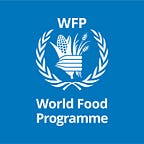From school meals recipient to WFP staff: Dungkar’s story
For the past 40 years, thousands of children have gone to school in Bhutan each day, knowing that a warm and healthy meal is waiting for them.
The World Food Programme and the Royal Government of Bhutan have been working together to ensure children across the country study on a full stomach. For parents, these meals are a powerful incentive to keep their children in school.
Children who relied on these meals have now grown up and are playing an active role in Bhutanese society. Today, members of the government, artists, teachers and even WFP staff share stories of when they ate these meals. WFP’s National Programme Officer Dungkar Drukpa is one of them.
From school meals recipient to staff
“When I was growing up, my parents were pretty poor. They were focused on just trying to survive. They were farmers and lived in a remote part of Bhutan,” says Dungkar Drukpa, WFP’s National Programme Manager.
“I was lucky to attend boarding school from when I was aged 6 or 7 years. I had to walk three hours from my house to the nearest road, and then travel three hours on the bus to reach school. My dad would drop me at the bus, and for the next three months we wouldn’t see each other.”
For students in Bhutan, education is free, and boarding schools provide accommodation, food, stationary and food free of charge. For poor families this is a life-changing opportunity to ensure their children can get the best possible start in life.
For Dungkar and his brother, education was both a pathway out of poverty, and a guarantee of three meals per day.
“I think I was destined to get an education. We had no luxuries at the time, and it was a luxury for me to stay with my parents. My job was to study and get ahead in life.”
“I ate good meals while I was at school. About 250–300 students lined up each day, and we ate three meals and had one tea break, and it was all provided by WFP. We mainly ate dahl, rice and potatoes. I realized then that the food was from WFP. All the bags had their logos on them, and we knew it had come all the way to our school from places like America and Japan.”
“Honestly, I was fortunate to be in a boarding school where there was an international organization that took care of us. I stayed at the school for nine months a year, and when I returned back to my village, I could see the difference. At school we ate well and we never had to wait to eat. At the time, I never realized how fortunate I was.”
For Dungkar, the chance to get an education and eat nutritious food for 11 years as a child had repercussions throughout the rest of his life. Although he grew up in a remote village, he moved to Thimphu, the capital, and began working with the Royal Government of Bhutan, where he remained for more than 16 years.
The start of a new career
Looking for a change, he saw a job advertisement for WFP.
“I decided to apply to WFP. Once I saw the advertisement, I became quite passionate. It really took me back to being a child. I thought I could serve the organization with passion, and that’s what I’ve done. I have worked hard. My job connects me to my past.”
For the past eight years, Dungkar has taken on several roles with WFP in Bhutan, including managing the office, and he’s now the National Programme Manager, a role that oversees logistics, monitoring and making sure programmes run successfully.
Although WFP no longer provides food to Dungkar’s old school, he has returned to see his family and school many times. “When I go back I can see where I studied, the trees I planted and the hostel where I slept.”
“One of the best parts of my job is going on field visits to many different schools. The children remind me of my own life when I was young. Another highlight is being in the field, driving along and all the children come out and wave at out car with the WFP logo on it. Everyone in Bhutan has positive memories of WFP and a lot of gratitude.”
“I was fortunate to be a beneficiary of WFP’s school meals programme. When I was young I took it for granted but looking back, I can really see the difference that it made.”
“Food is like an incentive for children to come to school. Children go to school because there’s food. You can postpone education, but you can’t postpone eating.”
WFP is in the process of phasing out the distribution of food in Bhutan, and the school meals programme will be completely run by the government. This year 17,000 children receive food from WFP and in 2018 the government will take full ownership of this decades-long programme.
Learn more about WFP’s work in Bhutan.
Story: Jessica Lawson
